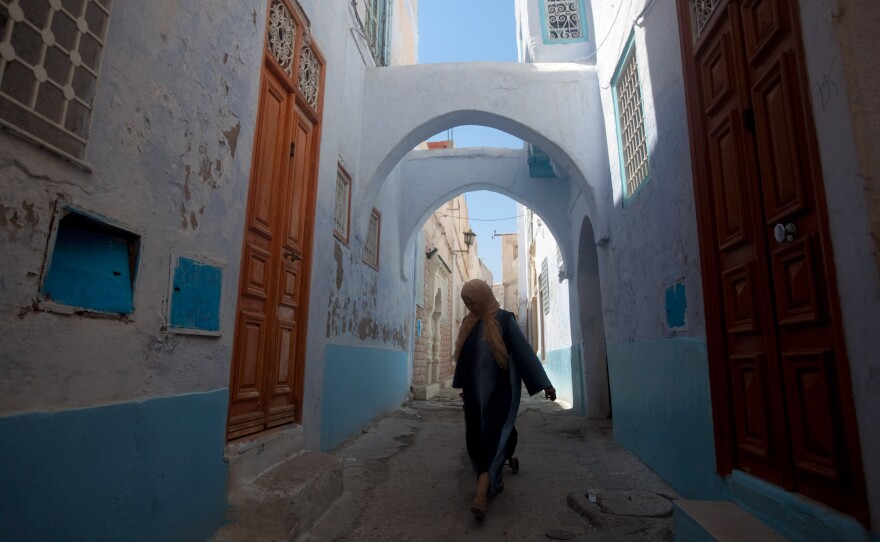Editor's Note: An attacker opened fire on a beach in Tunisia and killed 38 people on June 26. NPR's Alice Fordham went to cover the story. She used to live in Tunisia and reflects on how the country's changed in recent years.
Two years ago, I first went to the town of Kairouan, one of the holiest sites in Islam. Tear gas drifted around the beautiful old stones of the Great Mosque and nervous police sheltered in small patches of shade. They were there preventing a rally by an Islamic extremist group who wanted to wave black flags and chant intolerant slogans.
I spoke with the slight, white-haired imam, or prayer leader, who said it was better the rally be stopped because the group gave Islam a bad name.
Since its famous revolution in 2011 that kicked off the wave of uprisings known as the Arab Spring, Tunisia has struggled with a jihadi problem. While much of the country is moderate, there's a hardline, violent minority.
The old regime's solution? Simply throw thousands of Islamists in jail.
When that regime fell, many of them were released. The more moderate political ones stood in elections. But extremists preached radical messages. Since, there's been an uptick in violence: from sabotaging art shows to an attack on the U.S. Embassy in the capital Tunis.
My trip to Kairouan in 2013 was around the time the government was beginning to toughen up. Sulky young men with scraggly beards complained their rights were being violated.
Since, Tunisia has steered a wobbly path between being too authoritarian and too lax. Now, after dozens of tourists were mowed down in two attacks, many are calling for a tougher stance.

When I went back to Kairouan last week it was dusk. The sky was streaked purple and pink, birds were singing frantically and the boom of a cannon marked the end of the day's Ramadan fast. In a little restaurant, people dug into spicy fish soup, dates and yoghurt drinks.
The restaurant owner was afraid for his livelihood. Kairouan depends on tourists and attacks scare people off. The government needs to crack down hard on extremism, he said. His employees nodded.
But then I went to the Great Mosque, where there was a festive atmosphere as cheery men with big beards and veiled women showed up for evening prayers. It's people like this, pious but not violent, who fear they'll be targeted in any crackdown. And this time when I spoke to the imam, he was angry at the idea that mosques might be closed or Islamist political parties curtailed.
But the measures will probably go ahead anyway, and be popular. People are scared. Tunisia is right next to Libya, whose violent chaos is spilling over. These are not easy times to test out freedom.
Copyright 2021 NPR. To see more, visit https://www.npr.org. 9(MDAzMjM2NDYzMDEyMzc1Njk5NjAxNzY3OQ001))







